Mozambique: Critical issues remain with Renamo fighters demobilisation - NGO
31 years on – Southern Africa remembers Samora Machel
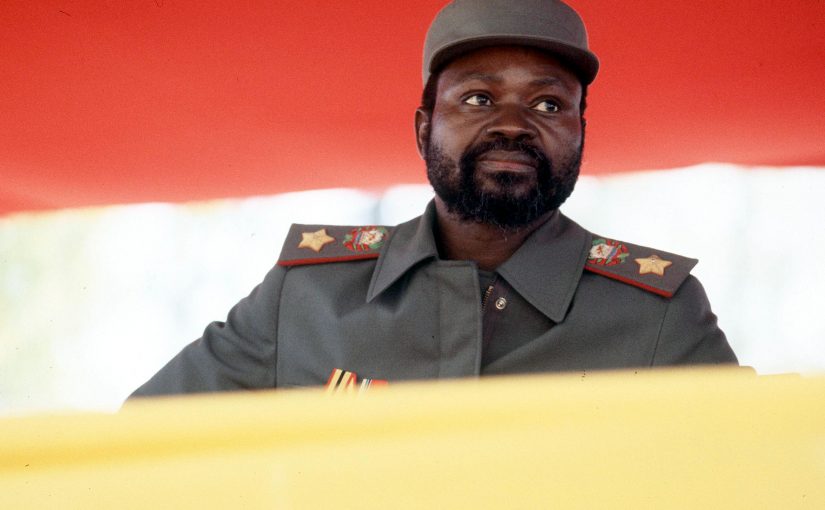
Mozambican Charge’ d’Affairs for the Harare embassy, Adnito Maure, is a broken man.
He feels investigations to establish the cause of Mozambican founding President Samora Moises Machel have been painstakingly long.
He feels that the more the investigations drag on, the more key witnesses are lost through death and the Machel’s family and Mozambicans may never get to know the truth regarding the death of their founding president.
“Emotions are high. What is more painful is that some of the witnesses to the crash are disappearing through death. If we continue losing these key witnesses then we will never know the truth. They will go to the grave with the secrets,” said an emotional Maure.
Maure said despite the inconclusive investigations into the death of President Machel, Mozambicans will ensure that his memory will never be erased in the psyche of his countrymen who have made it a point to annually commemorate his death.
Just like last year, Maure said there will be a ceremony at the site of the crash in Mbuzini, South Africa, to be attended by Machel’s family, government and Frelimo senior members, including South African counterparts.
Maure said another celebration will be held in Maputo where various activities would be undertaken to revive the Mozambican founding president’s memory.
Despite his death on October 19, 1986 in a plane crash in South Africa, many remember Samora Machel as a forthright charismatic leader who believed in the total annihilation of colonialism and imperialism.
In a seminal speech ever made by a foreign head of state in independent Zimbabwe, President Machel told Zimbabweans still teetering and grappling with the task of building a solid nation-state in early 1980 that: “To ensure national unity, there must be no Shonas in Zimbabwe, there must be no Ndebeles in Zimbabwe, there must be Zimbabweans. Some people are proud of their tribalism. But we call tribalists reactionary agents of the enemy.”
Such was Machel’s incisive grasp of what was at stake and his impassioned plea for continental unity that a dark cloud appeared in the African skies when he, together with 33 other passengers, died in a mysterious plane crash in Mbuzini near Mpumalanga, South Africa, just a few kilometres from Maputo, Mozambique.
Machel would have been 84 years on September 29 this year had it not been for that “mysterious” plane crash which the apartheid Margo Commission attributed to pilot error.
Most African leaders and the whole progressive world trashed the commission’s findings as nothing but an attempt by the apartheid regime to absolve itself from a clear and apparent complicity in the murder of one of Africa’s revered revolutionary icons.
Unsatisfied with the Margo Commission, the independent government of South Africa reopened the crash probe in 2008 and squarely accused the then white minority regime of using a decoy beacon to cause the crash.
The then South African Minister of Safety and Security Charles Nqakula initiated the inquiry which was endorsed by the then President Thabo Mbeki. The inquiry was to be conducted by the South African police and intelligence agencies, working with authorities in Mozambique.
Thirty one years on, the crash remains one of the greatest mysteries of the apartheid era with no conclusive data as to the actual cause of the crash on October 19, 1986. Only nine survived the crash while 33 others lost their lives together with the Mozambican founding president.
Researcher and historian, Phyllis Johnson, still believes more needs to be unearthed to establish the cause of the plane, which she said suddenly, overnight extinguished “the inspirational energy Machel generated”.
“Despite official inquiries in Mozambique, South African and the Soviet Union, the countries of ownership of the plane, venue of the crash, and nationality of the pilots, the full details have not yet emerged,” says Johnson.
This is despite the fact that then Mozambican President Armando Guebuza and then South African Thabo Mbeki had pledged to leave no stone unturned in finding out what happened on October 19, 1986.
A monument has since been erected at the site of the crash at Mbuzini where visitors testify to hearing the echo, whispering through the 35 vertical steel pillars of the monument designed by Mozambique’s leading architect Jose’ Forjaz.
The memory of President Machel has not been forgotten in the region and beyond. South Africa has led the way in commemorating the death of President Machel at the actual site of the crash together with Mozambican nationals.
In a paper presented last year at the annual Samora Machel lecture, Reverend Dr. Lucas Amosse, President of Synod Council of the United Council of the United Church of Christ in Mozambique, said President Machel’s motto “Aluta Continua” made him known in Southern Africa in particular, the continent and the world in general for his outcry for freedom.
“A charismatic leader, he influenced many people to joint fights against colonialism, apartheid for liberation. Today in many cities of Mozambique you find people listening to pirated CDs containing Samora Machel’s speeches, and after a while they would say: ‘This one was indeed the real leader and President; I wish he was here all this we are witnessing wouldn’t be happening’. The question I would ask is why? This is a question that we all ask ourselves in Mozambique today! Why?”
Reverend Amosse said President Machel was a leader of a broad mass liberation movement which represented the hope of many Mozambicans that liberation was possible and that “you can’t ask a slave with a gun in a hand if he/she wants freedom”.
He said President Machel was politically advanced and hardly could be understood but was appreciated by many poor people and also disliked by few elites mostly because of his pro-poor social policies and the way he used to interact with the masses and articulate his ideas.
This year’s commemorations must never lose sight of the fact of the need for a closure in terms of what caused the plane crash on that fateful night.
It is clear that even if the Russian crew had made a wrong turn, they still had no chance of surviving.
There was a strong presence of highly trained special South African forces in the area who were prepared to finish off the task had the decoy beacon plan failed.
Four commissions have to date failed to conclusively point to the actual cause of the plane crash. One was Mozambican, the other an international tripartite and another South African chaired by Judge Cecil Margo and one by the Soviets.
Like Che Guevara, Thomas Sankara or Amilcar Cabral, Machel was an internationalist who selflessly supported and allowed revolutionaries fighting white minority regimes in Rhodesia and South Africa to operate within Mozambique and he surely earned their wrath.
Thirty-one years on, Africa still needs answers, the people of Mozambique are yearning for answers and the people of Africa surely deserve closure to one of their illustrious revolutionary icons.
As Machel said: “Personalities and fame pass: the revolution must remain.”
By Lovemore Ranga Mataire


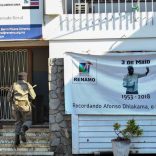

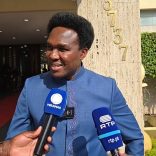
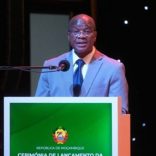
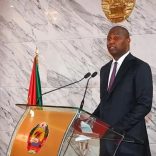






Leave a Reply
Be the First to Comment!
You must be logged in to post a comment.
You must be logged in to post a comment.